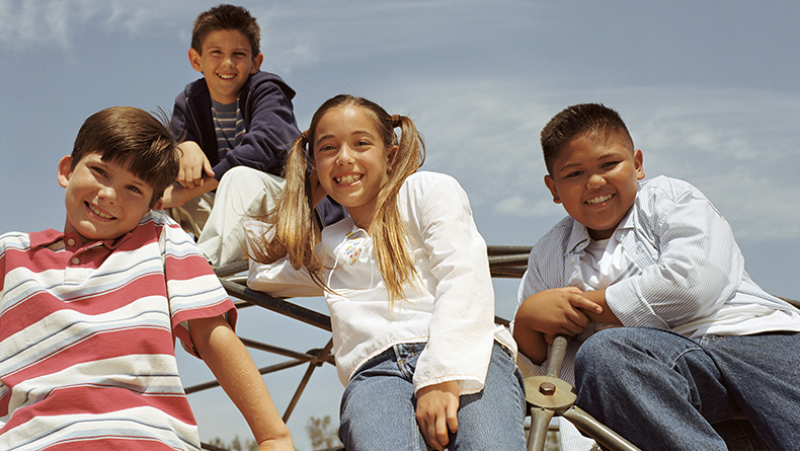Fostering Healthier Futures
Fostering Healthy Futures mentoring program listed among evidence-based interventions for at-risk youth

Imagine attending 16 schools by 5th grade. Instability like this, coupled with maltreatment and neglect, can set children on a path toward later mental health and behavior problems. How can we change this trajectory?
One proven approach is Fostering Healthy Futures® (FHF), the brainchild of Heather Taussig, associate dean for research at the Graduate School of Social Work. Started in 2002, Fostering Healthy Futures is a preventive intervention for preadolescent youth, ages 9 to 11, who have a history of placement in foster, kinship or residential out-of-home care.
“The goal of the Fostering Healthy Futures program is to enable children who have been maltreated and placed in foster care to experience all the opportunities life has to offer — to help them get on a positive trajectory as they enter adolescence,” says Taussig. The program uses individual mentoring and skills training to promote healthy youth development and reduce risk factors for adverse outcomes.
“When we talk about skills, we talk about emotion regulation skills, problem solving skills, social-emotional skills, helping kids to improve their abilities and practice them in a variety of settings,” says Orah Fireman, co-director of programming and dissemination. “We are supporting their resilience.”
It’s an approach that’s been shown to work. From the program’s previous base at the Kempe Center and University of Colorado School of Medicine, Taussig ran two randomized controlled trials with 425 FHF participants. Those studies found that children who received the program had better quality of life, fewer placement changes and higher rates of permanency, fewer trauma symptoms, better mental health functioning, less residential treatment and needed fewer psychotropic medications.
The FHF program for preteens includes group-based skills training on topics such as healthy relationships, anger management, communication and resisting negative peer pressure. Also during the nine-month program, highly trained social work or psychology graduate students mentor children and work individually with them to generalize the skills they're learning to real-life situations. They participate in recreational or extracurricular activities together, work on self-advocacy, shadow an adult in the child’s career of interest and create a “Lifebook” that incorporates the child’s memories, skill attainment and future goals.
Taussig and colleagues are currently completing data collection for a National Institute of Justice-funded long-term follow up study of youth participants seven to 10 years after they were enrolled in Fostering Healthy Futures. In addition, FHF has been named an evidence-based intervention, and Aurora Mental Health Center has been implementing the program for the past four years.
In 2014, Fostering Healthy Futures moved to GSSW with Taussig. She and Professor Kim Bender have been piloting a randomized controlled trial of the Fostering Healthy Futures for Teens mentoring program. The adapted teen program enrolls 8th and 9th graders with open child-welfare cases (not just those in out-of-home care).
“We’re interested in positively impacting the lives of young people, pushing the envelope on how we do that, and contributing to the evidence base for a wide range of programs that could improve outcomes,” Taussig says.
Research on the Fostering Healthy Futures for Teens program is ongoing, and preliminary findings are positive.
“Most kids in foster care don’t really have a lot of hope and don’t think outside their situation,” one caregiver recently shared about Fostering Healthy Futures for Teens. “The program helps them see the big picture and start to dream again like kids should do.”
Read more about this research in the Journal of the Society for Social Work and Research.



